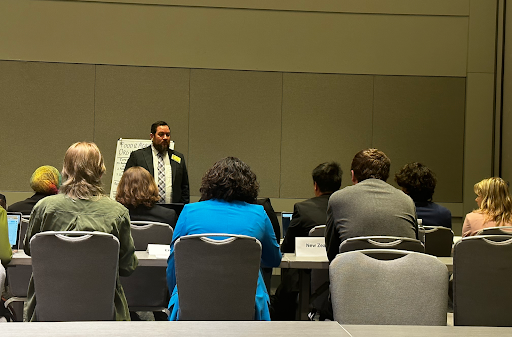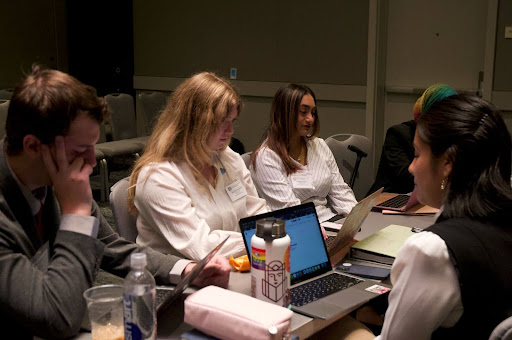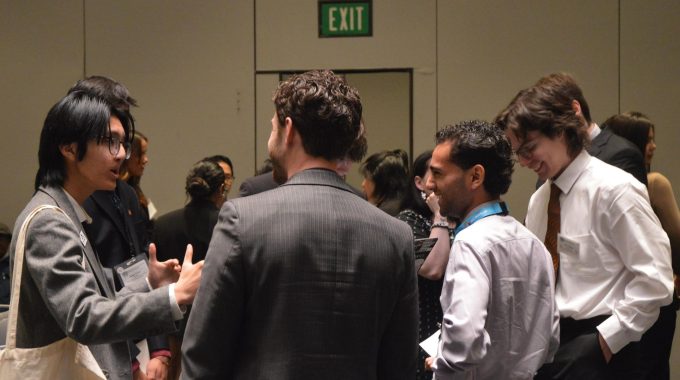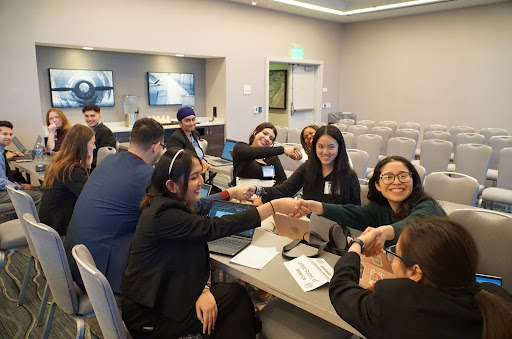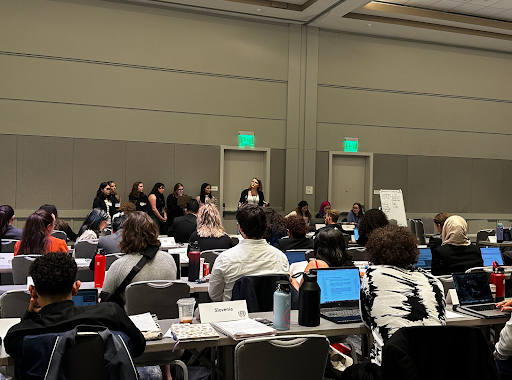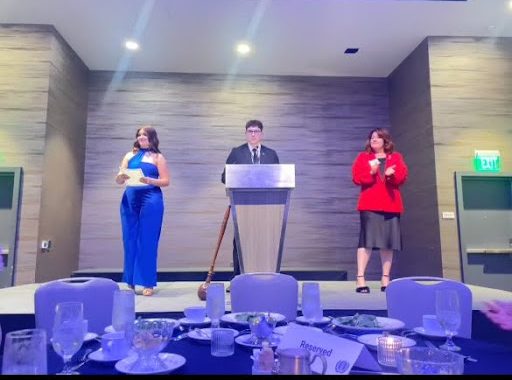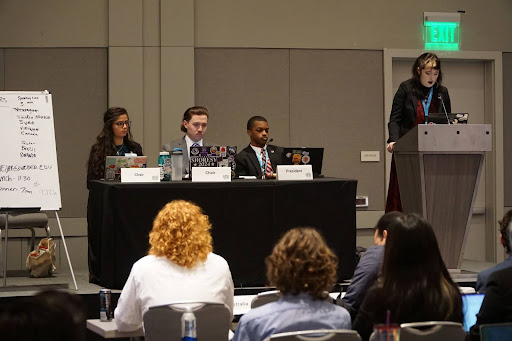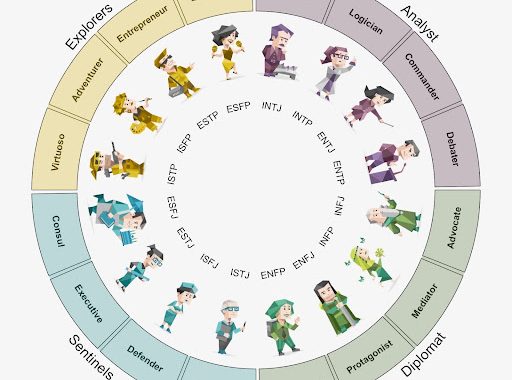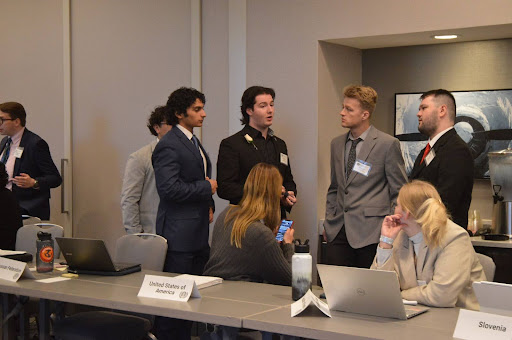Committees’ Q&A with Wes Rist
The second day of the MUNFW each committee received a visit from this year’s keynote speaker, US Department of State representative Wes Rist. During his visit, he opened the floor to delegates to ask him questions of any matter. The Atrocity Prevention Policy Advisor shared his experience and advice from his career and academic journey. Students were eager to absorb any amount of information from a leader in international affairs.
Speaking first with the General Assembly, Rist gave students insight on real world crimes against humanity and international law barriers. He explained that although it may be tempting to reform global affairs, it is best to use every resource available in the structure to make change.
During his time with the First Committee, he encouraged students to continuously practice reading comprehension skills by engaging with a wide variety of sources and translations to gain perspective for international policy. Rist emphasized the continuous practice saying “If you don’t stretch it now you’re not actually getting better at it.” When asked about the job application process to the US Department of State, he noted that in almost every field AI algorithms have taken over the first step of screening and that it would be best to directly copy from a job description to pass as they are looking for specific words. The speaker suggested that in order to stand out applicants should gain experience and broaden their perspective. One of the biggest tips he warned groups was don’t go to law school unless you absolutely have to, reiterating that short form communication skills and analytical skills help immensely in policymaking but can also be developed out of law school.
Rist spent his time with the Food and Agriculture Organization explaining how relevant and severe food security is currently. He described that across the globe more famine is increasingly being used as a war tactic resulting in several regional areas. The representative warned that being a part of international affairs success is measured over decades and that some days are harder than others to find hope. In order to avoid burnout and hopelessness, talking to people and building relationships outside the field gives him a breath of fresh air and keeps him grounded. After each discussion, Rist welcomed students to meet him after hours for any additional help. Having Rist as an example of where students could be in the future, inspired them to hone their skills even more and continue the conference with even more passion.
Breanna Reyes
World Press Reporter
California State University, East Bay

